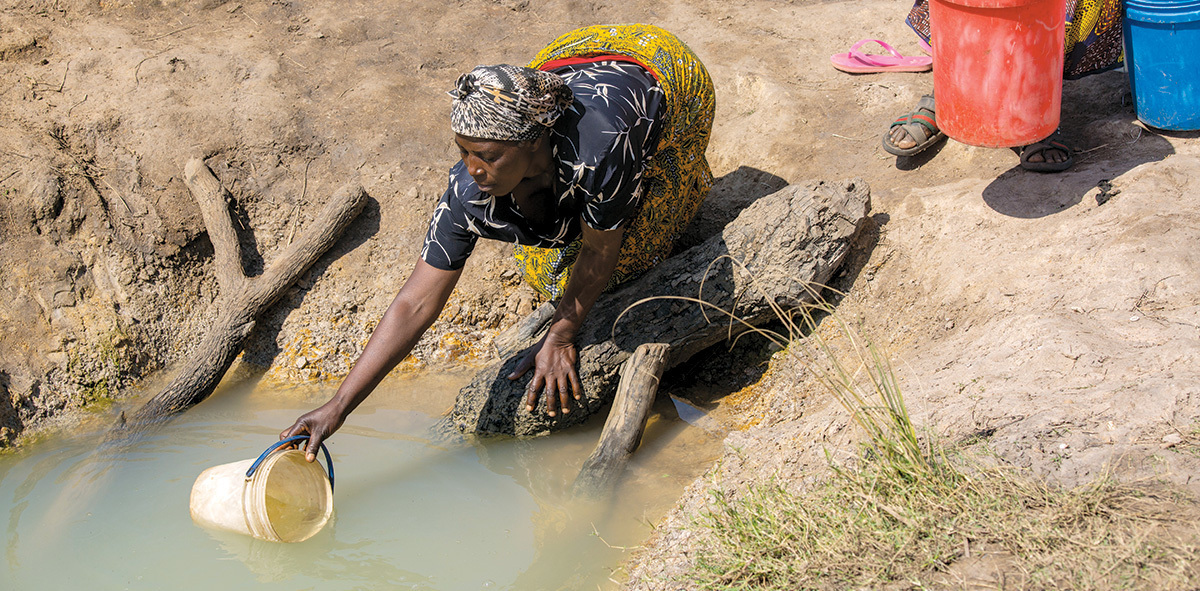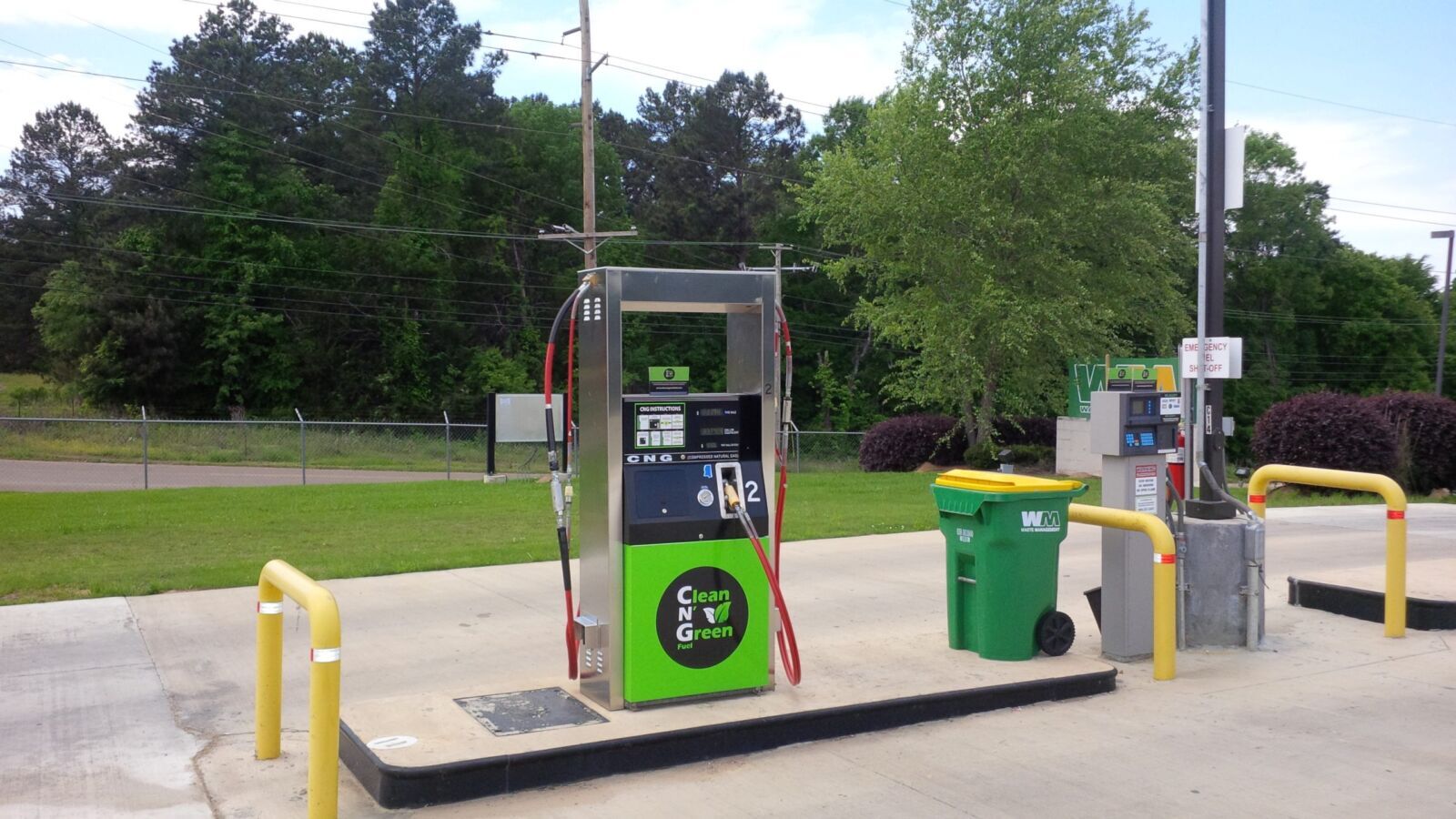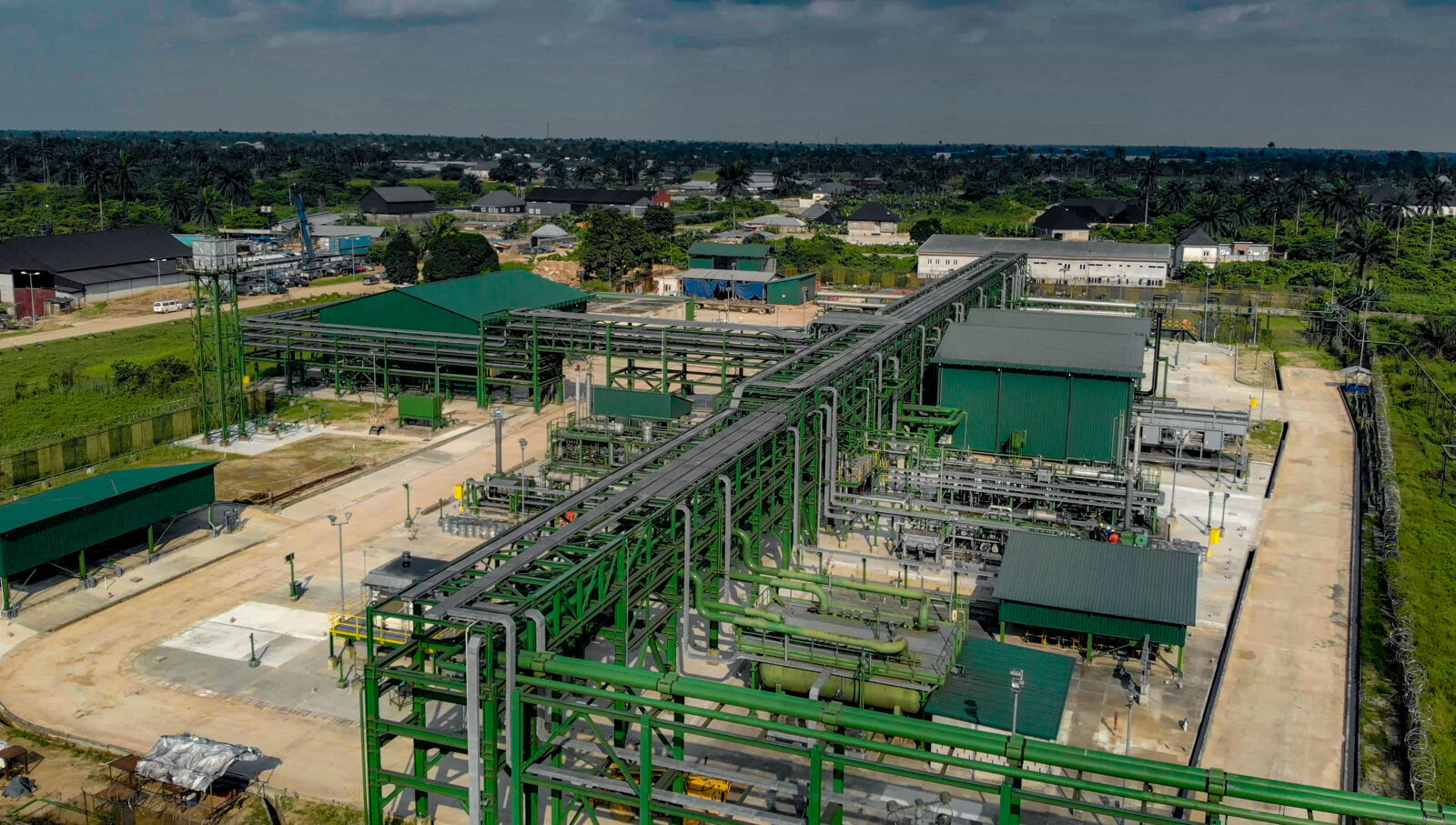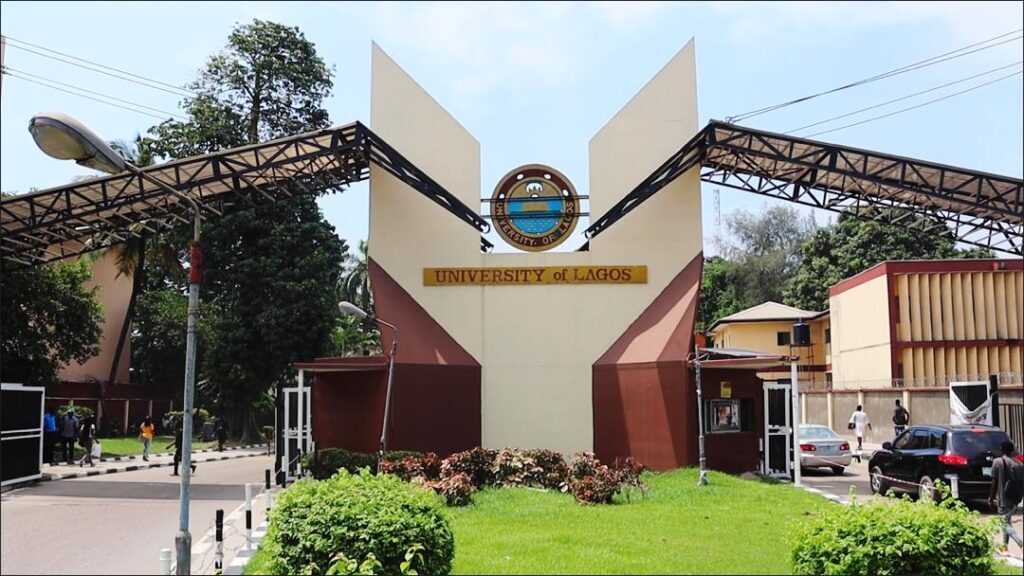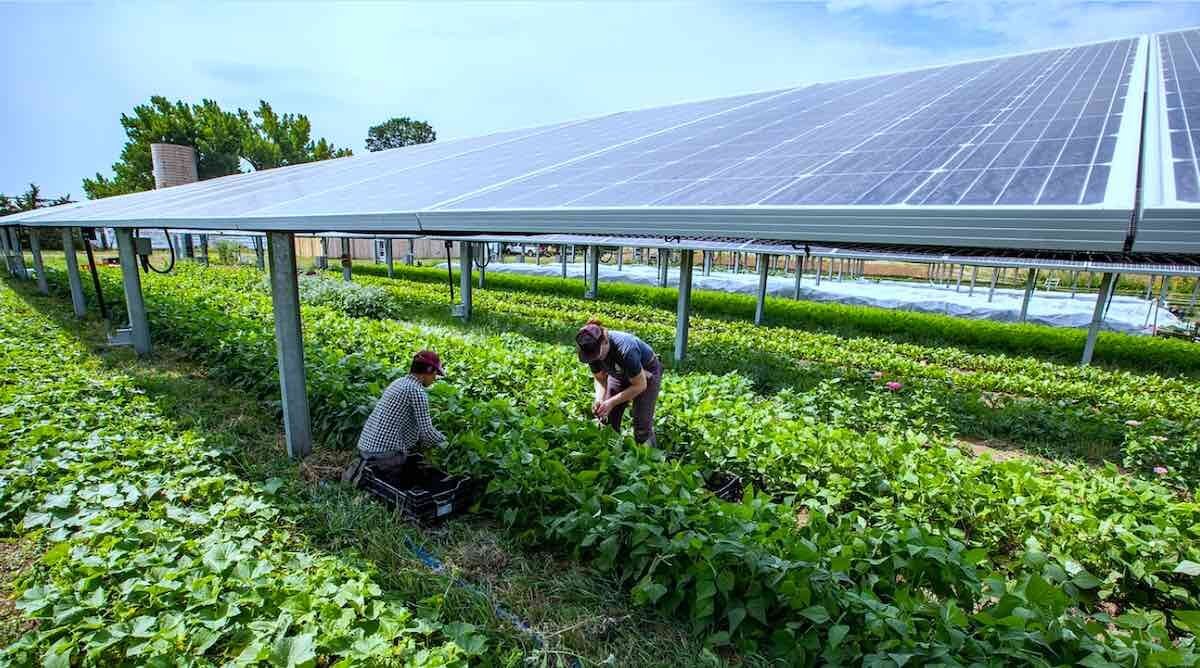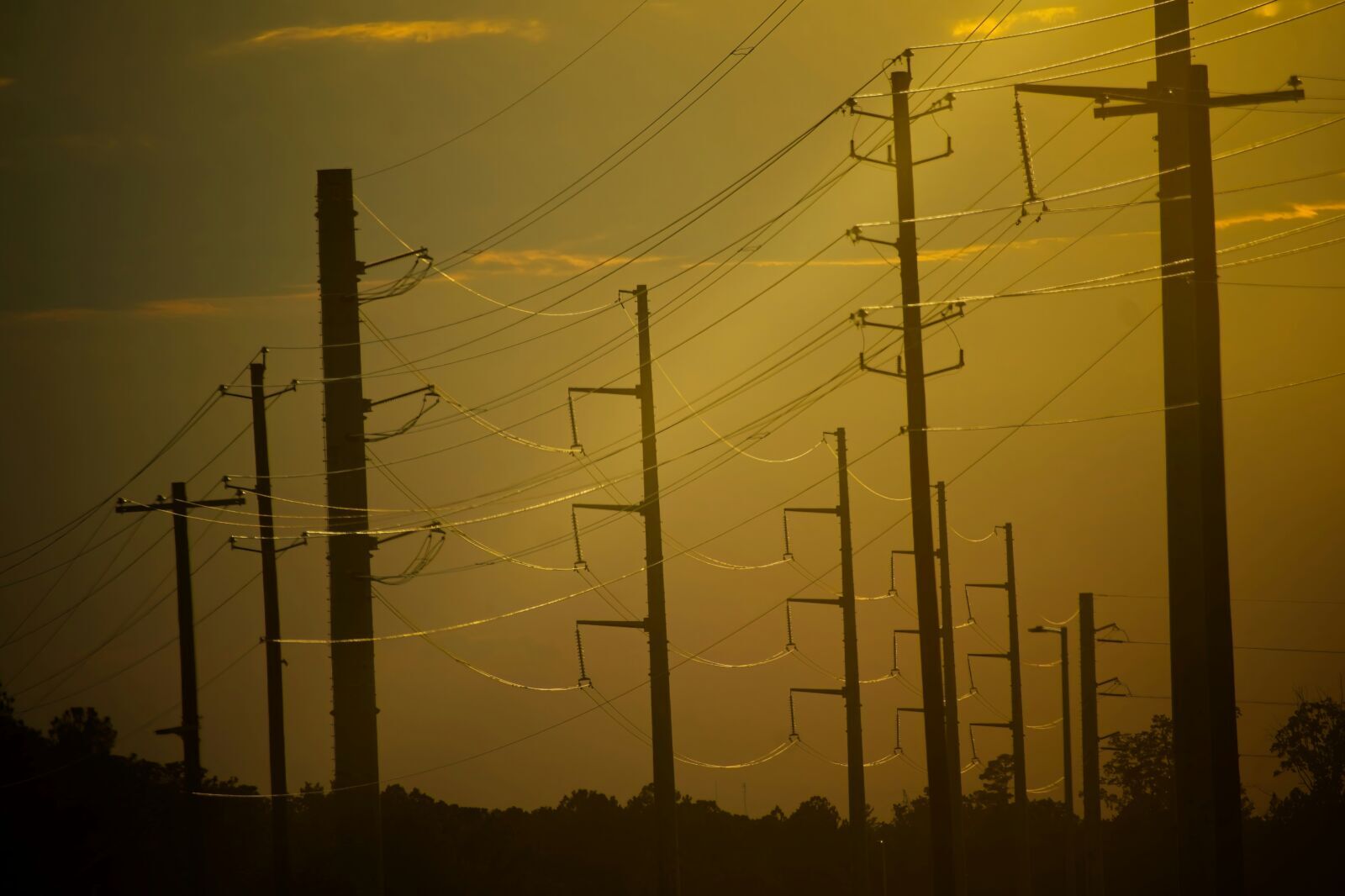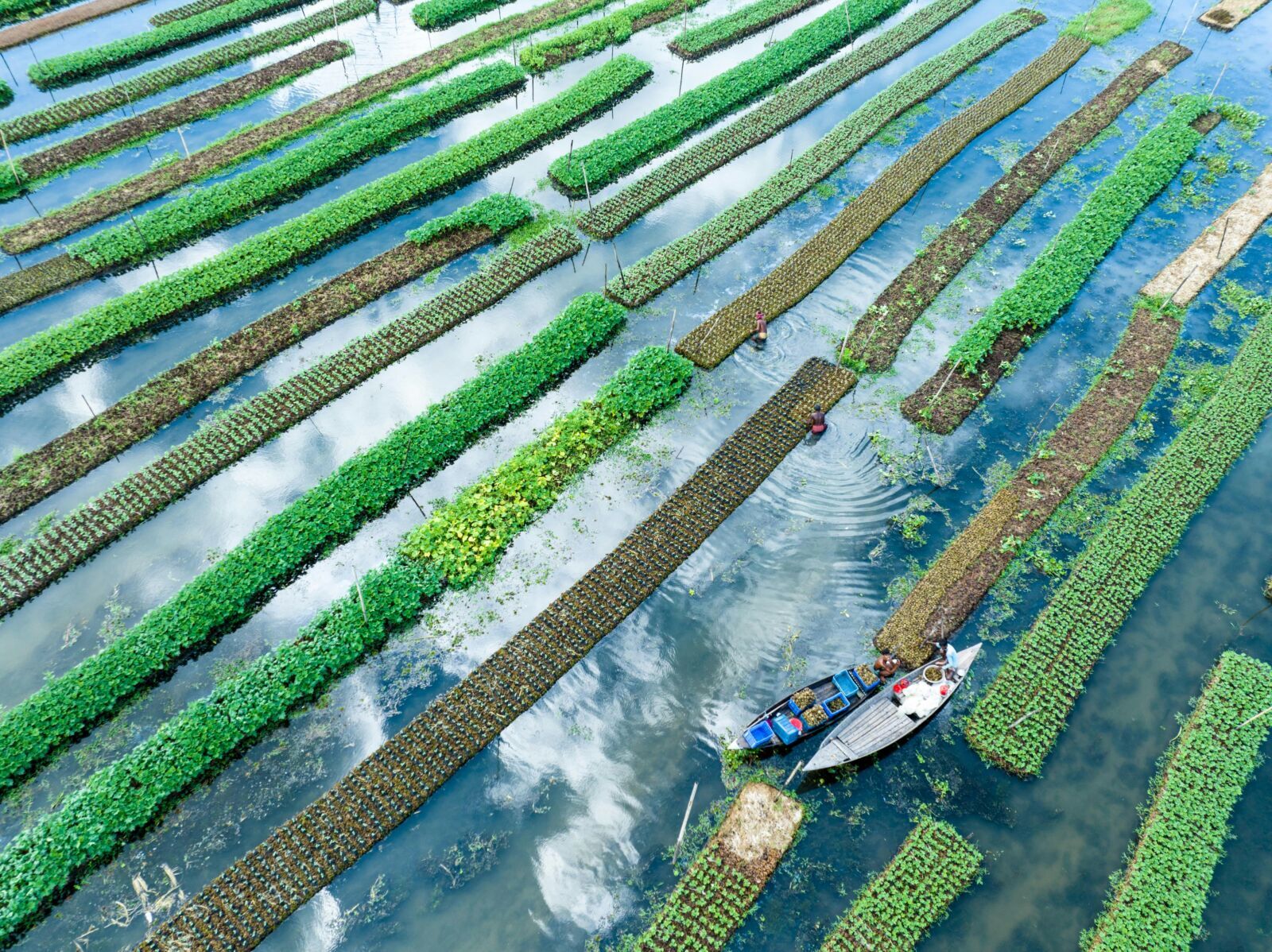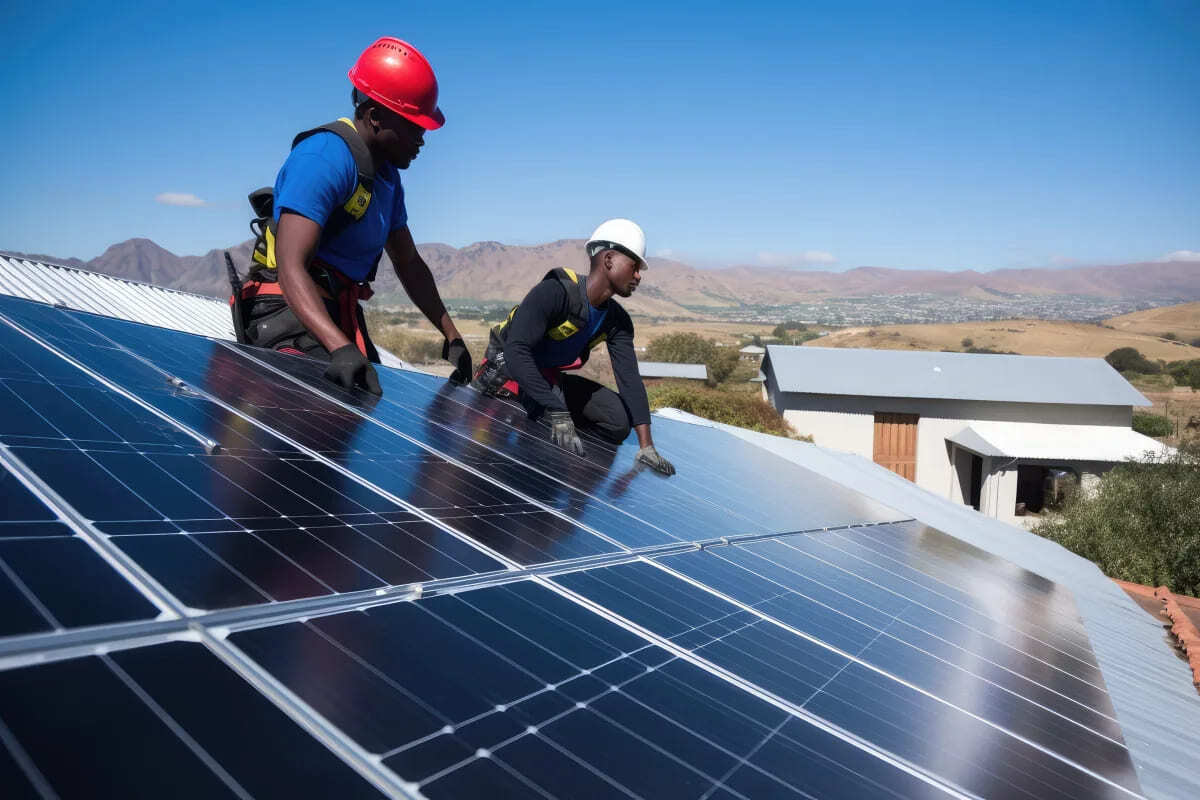In townships where factories spew chemical sirens and rivers run toxic, African women are turning their lived suffering into instruments of justice and change. For decades, labelled victims, they are now authors of climate intelligence systems—not just data points but architects of resistance.
Across the continent, a new movement is gathering women asserting their rights over extractive capital, refusing to be quietly measured, and demanding accountability from the system they helped sustain.
From poison alarms to power
In communities such as Zamdela in South Africa's Free State and the oilfields of Nigeria's Niger Delta, women have lived with the impacts of climate injustice in real-time: chemical sirens signalling toxic releases, water that clouds as though the earth itself was warning them.
These women are no longer only victims of extractive industries; they are shifting roles, creating their own measurement systems of contamination, organising mock tribunals, and mobilising data from within their communities to challenge the claims of benevolent "green finance".
The stakes are high: in Africa, climate impacts do not affect only the affluent; they also affect those whose labour, territory and bodies have been treated as expendable. This is where climate capitalism meets gendered injustice.
Key metric snapshot
| Indicator | Value / Insight |
|---|---|
| Women-led data initiatives | Multiple community-based systems in South Africa and Nigeria are tracking emissions, health outcomes and cook-stove adoption rates. |
| Smoke from firewood is among the top risks | In Nigeria, smoke from open-fire cooking is described as "like inhaling the smoke of 400 cigarettes every hour" for women and children. |
| Climate finance gender gap | Women hold crucial knowledge yet remain marginalised in data control, finance and decision-making. |
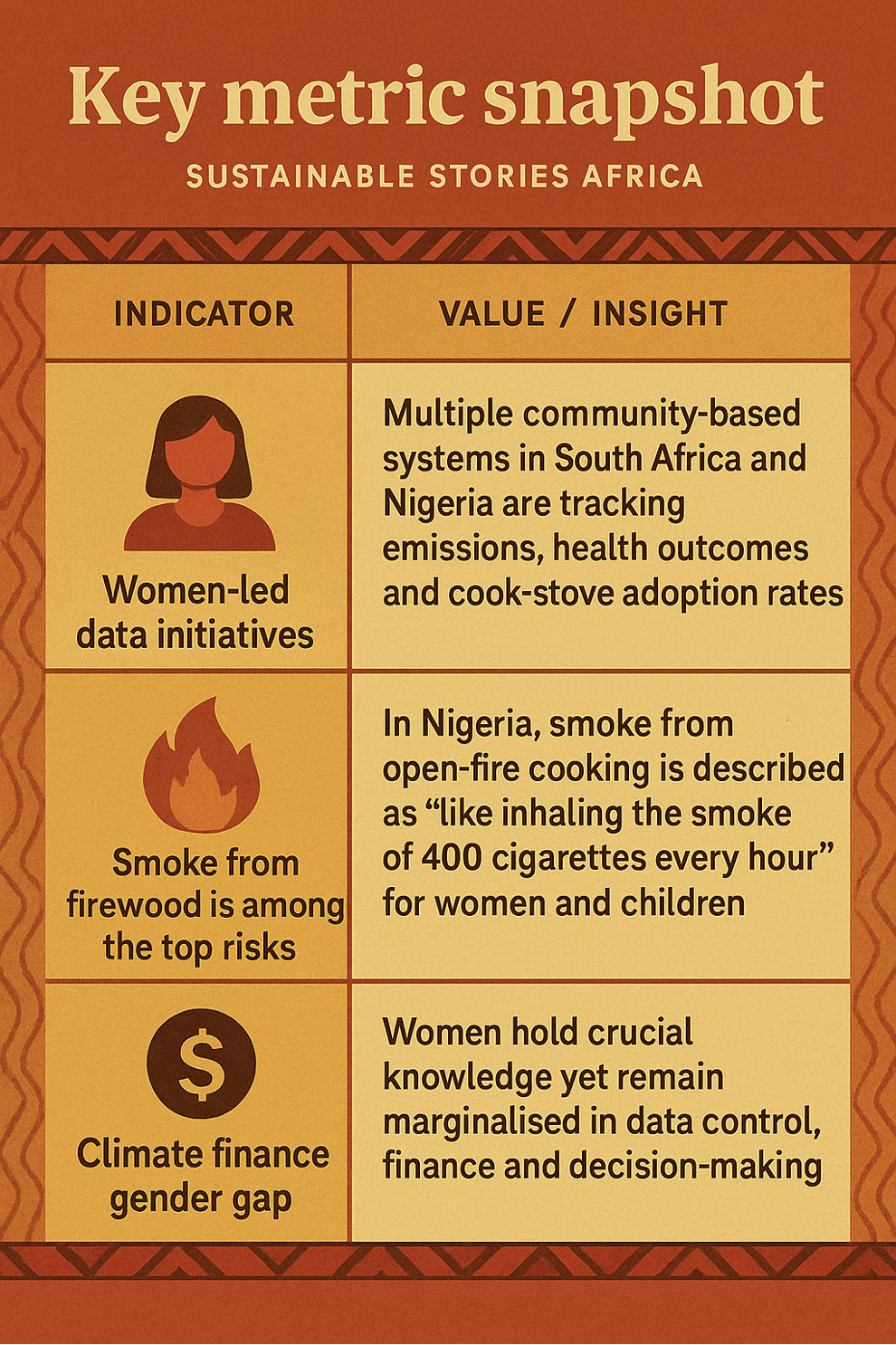
Why this story must matter now
Traditional climate-finance frameworks treat Africa as a recipient, not a designer. Yet the lived reality for many African women speaks of extraction, toxicity and legacy harms. The transformation is not just about new funds; it is about who holds the data, who sets the standard, and who is counted.
By repurposing their daily survival into community intelligence, women in Africa are challenging the foundational architecture of climate capitalism. They refuse to be sidelined as victims or tokens.
Instead, they demand structural change from representation in boardrooms, to control of emissions data, to financial flows that favour accountability, not only growth.
In a world built on taking, even green promises can echo old wounds, unless we begin again, designing not just for profit, but for repair.
What stakeholders are seeking: justice, inclusion, scale
Across grassroots groups, NGOs and regional networks, African women are articulating clear goals:
- Data sovereignty: control over monitoring systems and independent verification of pollution, health and fuel use.
- Gender-transformative finance: flows of climate funding that recognise women not simply as beneficiaries but as decision-makers and architects.
- From extraction to regeneration: moving from a model of resource-exploitation for profit toward one of community well-being, land justice and non-extractive futures.
Stakeholder priorities
| Stakeholder | Primary aspiration | Barrier to realise |
|---|---|---|
| Community women & grassroots | Data and decision-making power | Legacy of exclusion, corporate capture |
| Climate-fund investors/DFIs | Measurable impact and governance | Lack of locally grounded frameworks, data deficits |
| Governments & policymakers | Inclusive development, resilience | Institutional inertia, patriarchal norms |
| Extractive-industry actors | Licence to operate under "green" brand | Reputation risk, accountability demands |
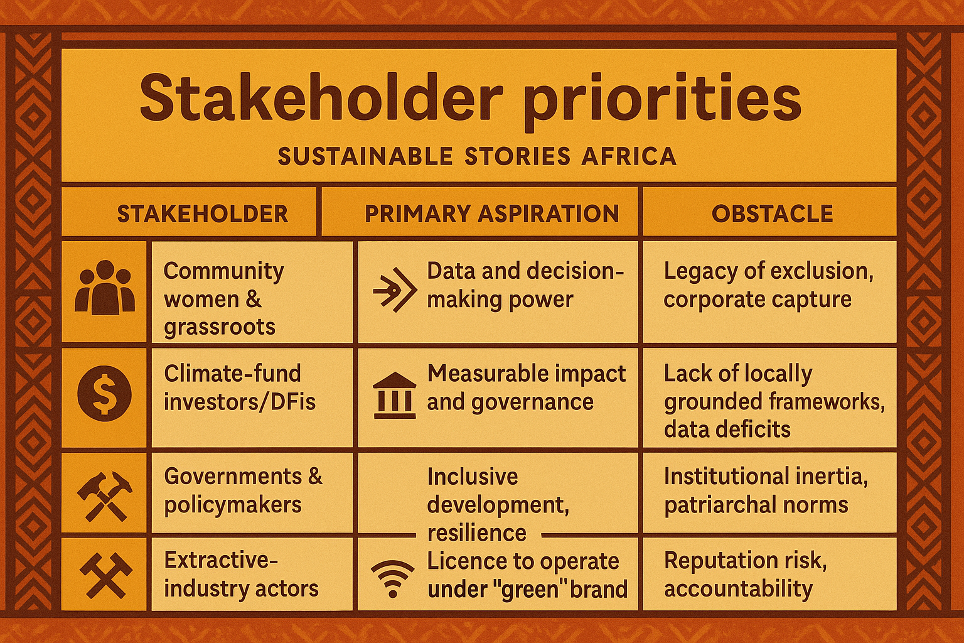
Steps are being taken, and what remains
- Community baseline systems: Women in Nigeria tracked stove-adoption, fuel-spending and health outcomes as proof of demand and impact—moving from survey subject to data producer.
- Legal challenge frameworks: In the Niger Delta, women's groups compiled independent inventories of corporate emissions, tapped legal reforms like the 2021 Petroleum Industry Act, and held estates to account.
- Gender-responsive climate finance policy: Reports emphasise that shifting gender roles is key to building resilience, yet women still have limited access to climate-finance channels.
- Movement building and alternative architecture: Pan-African assemblies, such as the Women's Climate Assembly, are forging new norms around reparations, rights of refusal ("Right to Say No") and transforming extractive development paradigms.
Path Forward – Women Rewriting Africa's Climate Justice Playbook
The future of climate action in Africa hinges on recognising that resilience, data-sovereignty and justice are inseparable from gender and power. African women are already rewriting the playbook: not only responding to climate harm but redesigning monitoring, finance and governance systems that underlie it.
For lasting change, the global climate architecture must shift; money alone is not enough. It must channel through structures that treat women as architects, not afterthoughts; that transform extractive logic into regenerative models. Unless this shift occurs, the many millions of African women living with daily environmental injustice risk being perpetually sidelined.
The frontline isn't just a village. It is the interface where data, justice and capitalism collide. The heroine is not rescued; it is agency. And Africa's climate future depends on recognising that fact.
Culled From: https://rpublc.com/october-november-2025/women-climate-capitalism/

